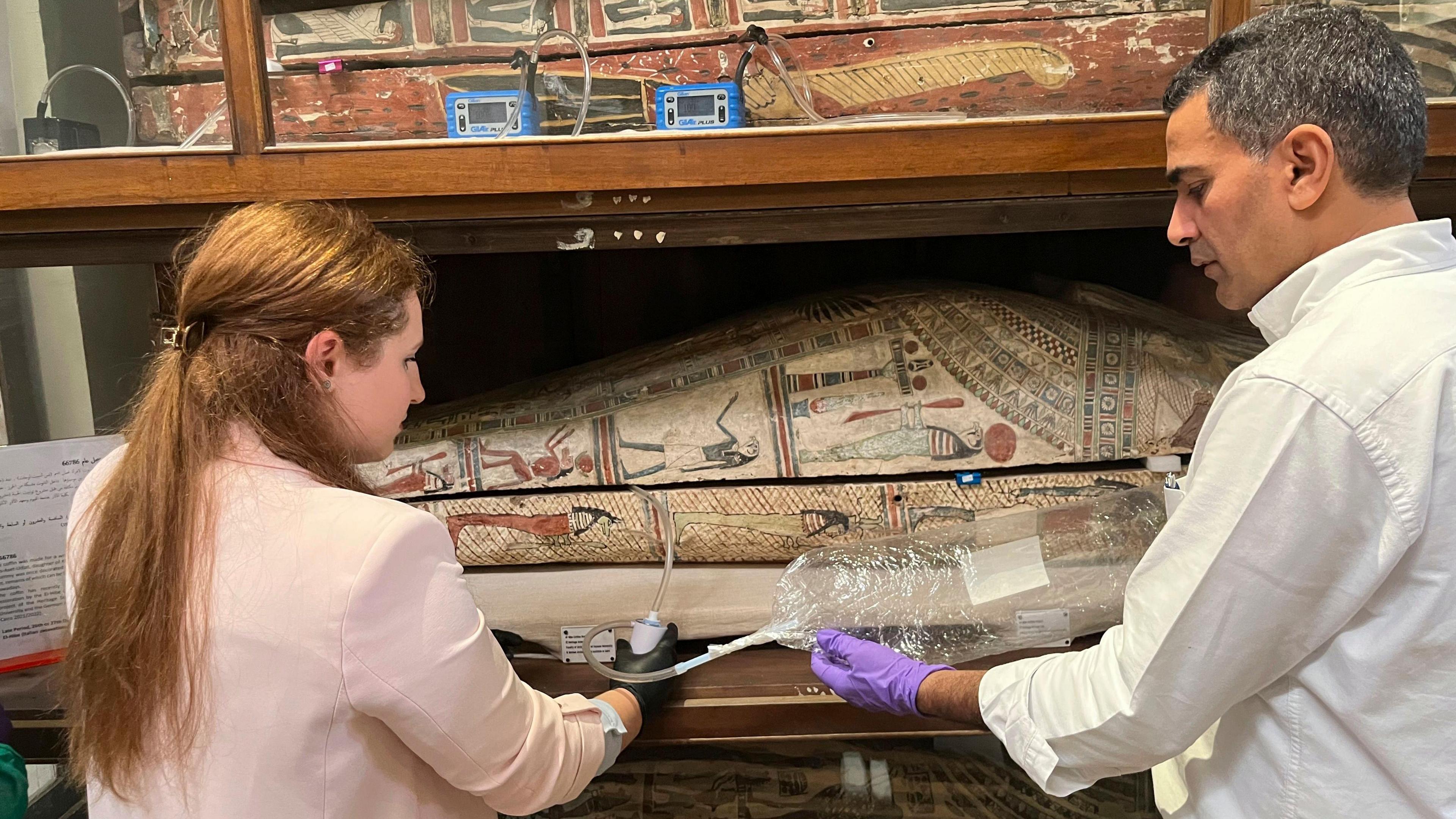'We're repairing a damaged Egyptian mummy on our uni course'
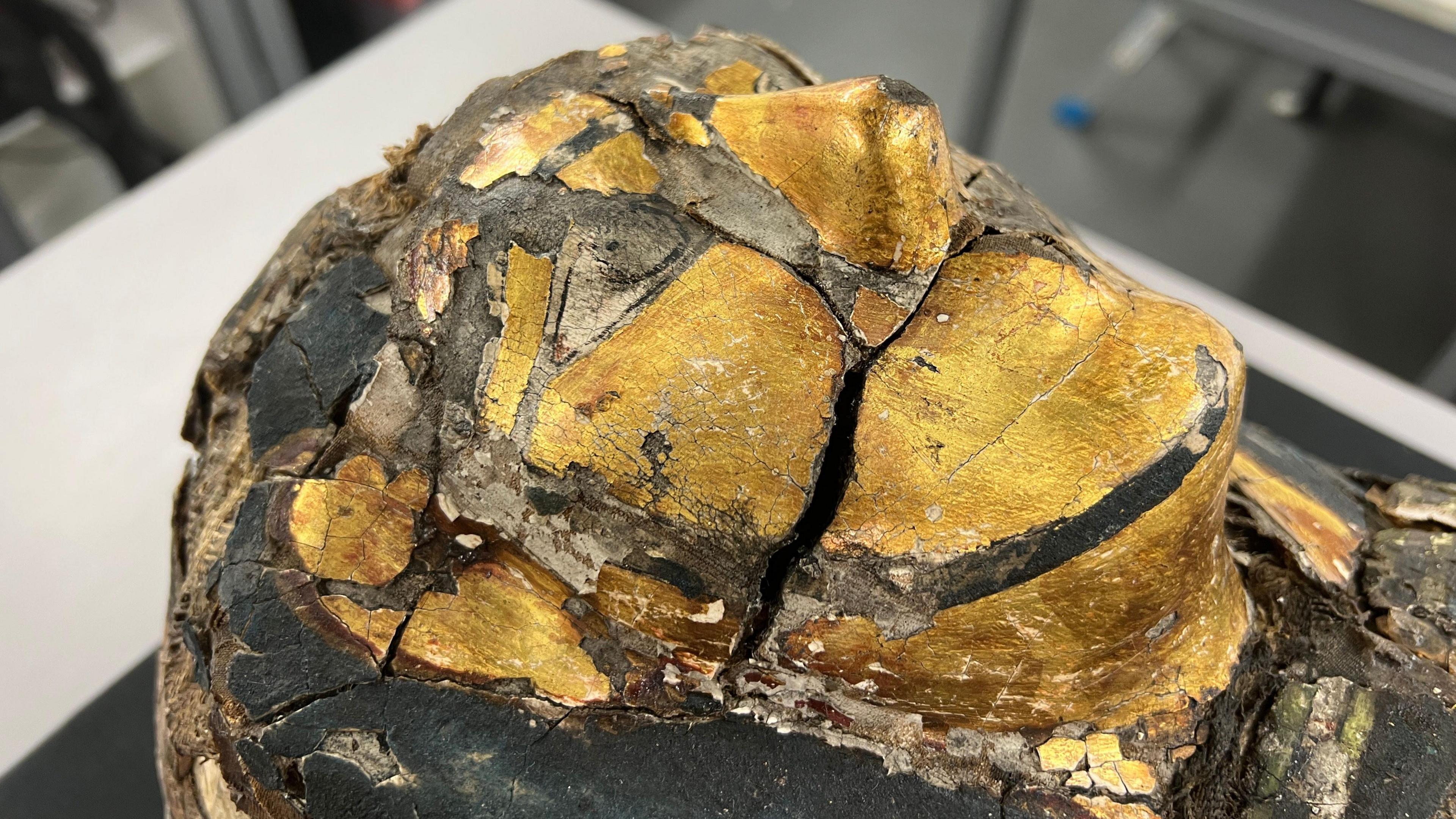
The cartonnage surrounding Pa-Sheri had also been badly damaged
- Published
A 2,300-year-old Egyptian mummy has been taken to Lincoln for restoration work.
During the 19th Century the mummified man, known as Pa-Sheri, was taken from Egypt to Britain and has been part of the Derby Museums collection since at least 1859.
X-rays undertaken by the museum showed that Pa-Sheri had been severely damaged when he was previously unwrapped and examined.
Two student conservators from the University of Lincoln have worked to preserve the embalmed man as part of a conservation project funded by the Pilgrim Trust.
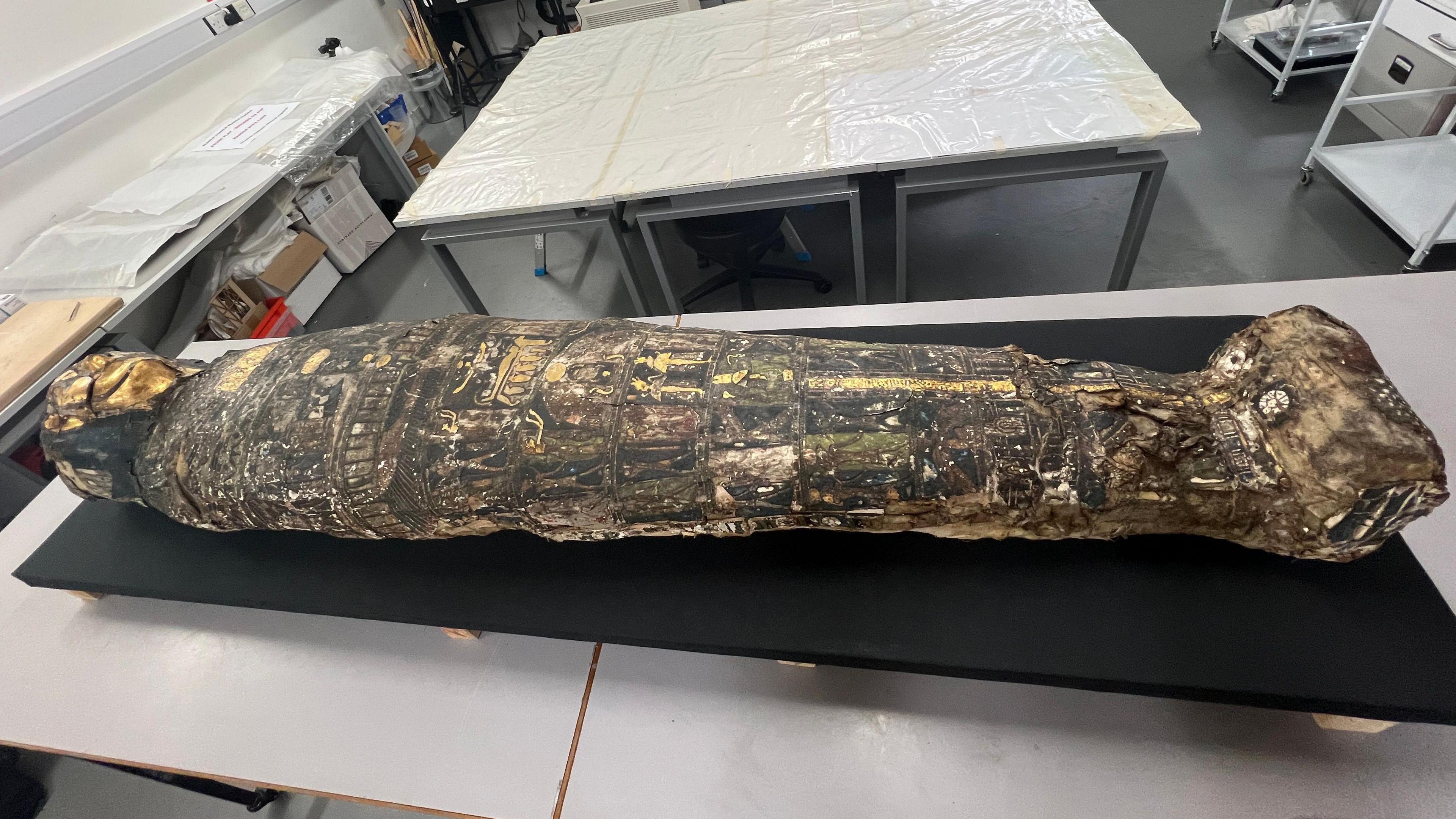
Pa-Sheri, a 2,300-year-old mummified Egyptian at the University of Lincoln
Pa-Sheri lived around 300 BCE during Egypt's Ptolemaic period. His remains are cocooned in a painted cartonnage – a funeral mask, made of plastered layers of fibre.
The intricate painting on the cartonnage suggests that Pa-Sheri was of a high social standing in ancient Luxor.
Conservation of Cultural Heritage students Ella Maude and Ella Monteiro, under the guidance of a senior technician, have been carrying out the preservation work at the university since July.
Miss Maude, who has just completed a graduate diploma in conservation studies, said: "At some point he was unwrapped, we presume by the Victorians."
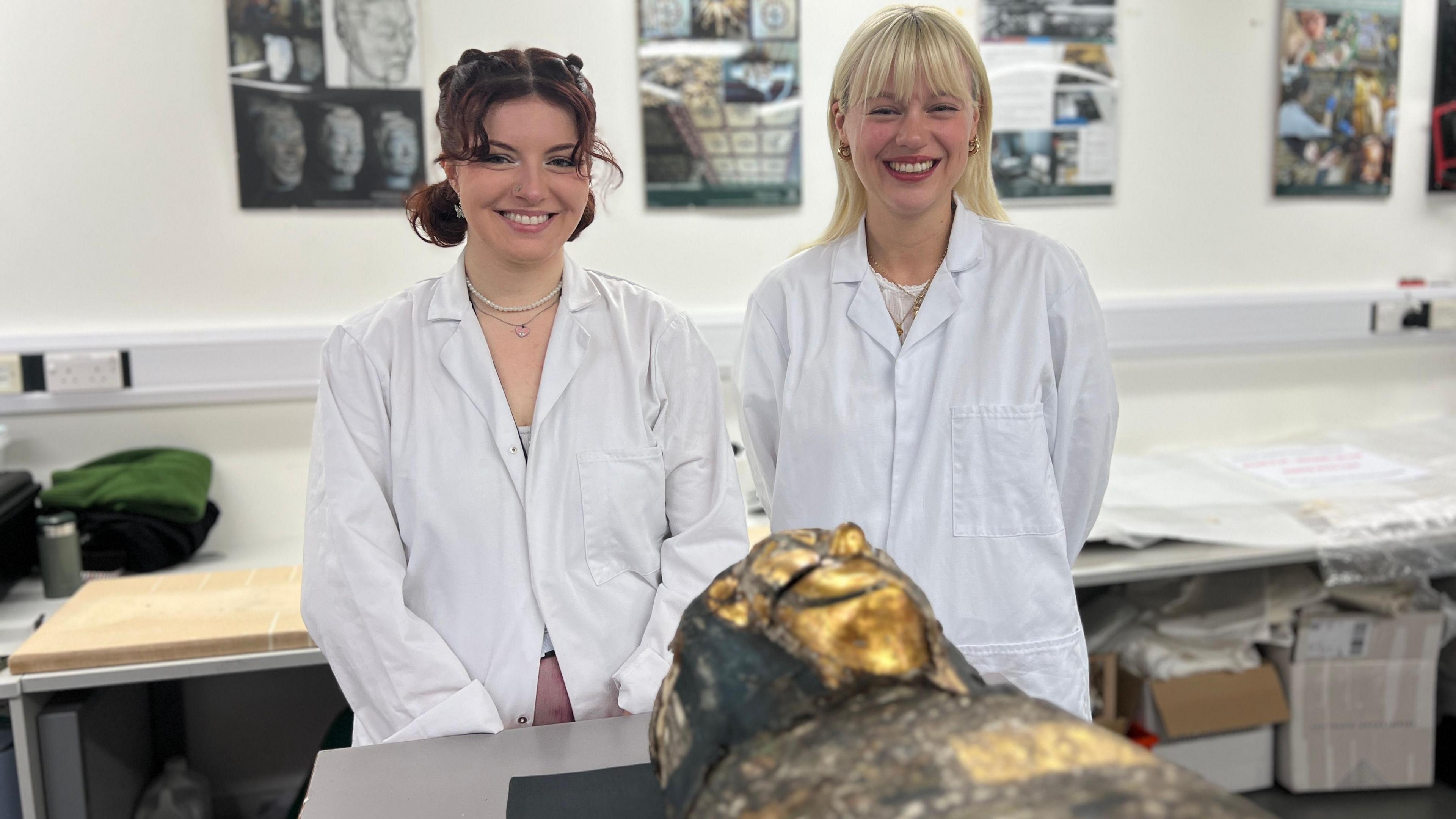
Ella Monteiro and Ella Maude said it was an honour to have worked on Pa-Sheri
During the examination, Pa-Sheri's head, pelvis and parts of his limbs were removed and his arm bones were rearranged into his chest cavity. His outer wrappings had been reattached, concealing the damage, which was only discovered when the body was X-rayed.
"We don't know if it was for scientific study or there are occasionally these things called mummy unwrapping parties where it was almost for entertainment," Miss Maude explained.
The university team said they had taken a minimal intervention approach, instead of trying to restore Pa-Sheri to an 'imagined' original state.
The cartonnage had also been badly damaged. The students have strengthened the flaking plaster and paint layers, cleaned the fragile surfaces and replaced aged supports beneath Pa-Sheri's mask.
"He's absolutely stunning," Miss Monteiro said.
"There's lots of hieroglyphics, illustrations, colours. He's very well painted," she added.
Pa-Sheri is heading back to Derby Museums this week, where he will displayed alongside another mummified individual, Pypyu, in a new exhibition which examines how material originating from Egypt ended up in museums like Derby.
"It's really important to talk about some of the objects that get brought to the UK through colonialism and occupation," Miss Monteiro said.
"Sometimes they are poorly treated here and it's important to talk about this history."
The students said it had been an honour to have been involved in the restoration work preserving Pa-Sheri for the future.
Listen to highlights from Lincolnshire on BBC Sounds, watch the latest episode of Look North or tell us about a story you think we should be covering here, external.
Download the BBC News app from the App Store, external for iPhone and iPad or Google Play, external for Android devices
Related topics
- Published10 July 2024
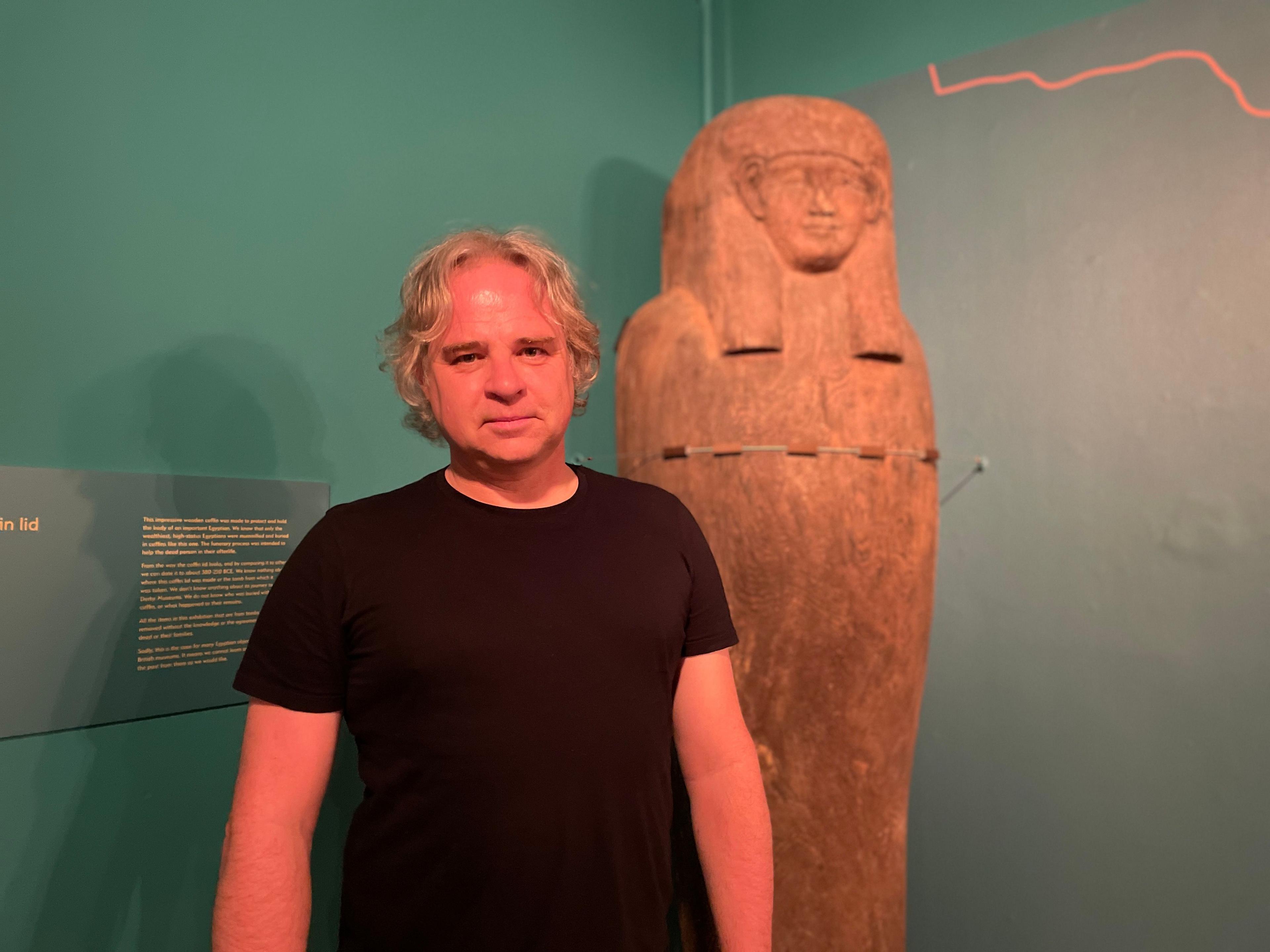
- Published25 July
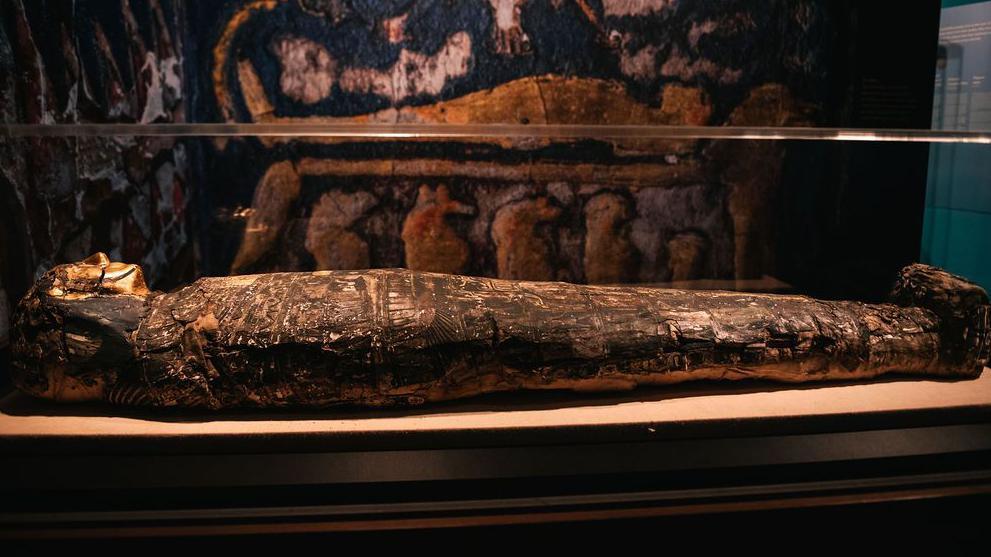
- Published14 February
